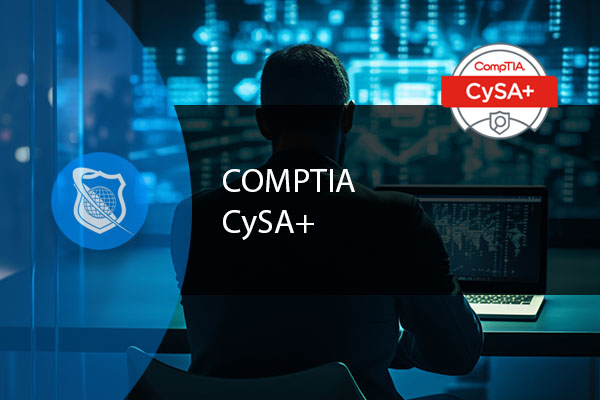Introduction
The cybersecurity landscape is a complex and dynamic field that continually presents new challenges. With the increasing number of cyber threats, the role of specialized professionals like SOC Analysts has never been more critical. If you’ve been contemplating how to become a SOC Analyst, you’ve come to the right resource. This article serves as a comprehensive guide that aims to demystify the role and responsibilities of a SOC Analyst. We will explore the various facets of what a SOC Analyst does, the qualifications and skills you’ll need, and the steps you can take to start your journey in this exciting career path. Whether you’re a student considering a career in cybersecurity or a seasoned IT professional looking to specialize, this guide will provide valuable insights into the SOC Analyst job description, requirements, and career opportunities.
What is a SOC Analyst?
In the realm of cybersecurity, a SOC Analyst, also known as a Security Operations Center Analyst, plays a pivotal role. This individual is tasked with monitoring, detecting, and responding to an array of security incidents and vulnerabilities that could impact an organization. The SOC Analyst is the first line of defense in safeguarding an organization’s data integrity and operational infrastructure from cyber threats and attacks. They work in real-time, using advanced tools and technologies to identify and assess potential security risks before they can impact the organization. Their role is not just reactive but also proactive, as they help in the development and implementation of security measures that prevent future incidents.
CompTIA CySA+ Training
Ready to fortify digital landscapes? Unleash your potential with our CySA+ course. Master behavioral analytics, shield networks, and become a certified defender against cyber threats. Elevate your security prowess, ace the CompTIA CySA+ (CS0-003) exam, and secure a resilient future for organizations
SOC Analyst Meaning: More Than Just a Title
When you hear the term “SOC Analyst,” it’s easy to pigeonhole the role into one that merely monitors security alerts. However, the scope of duties and responsibilities is far more extensive and nuanced. A SOC Analyst is not just a watchman but a skilled professional with a deep understanding of cybersecurity protocols, risk management strategies, and incident response plans.
They are often involved in the analysis of security architectures and have a say in the implementation of security policies. Their work goes beyond identifying what does a SOC Analyst do in a reactive sense; they are also proactive problem-solvers. They collaborate with other departments like IT and legal to ensure that the organization’s security posture is robust and compliant with regulations. They may also be involved in educational initiatives, training staff on best practices in cybersecurity, thereby enhancing the organization’s overall security awareness.
In essence, the SOC Analyst role is multifaceted, requiring a blend of technical skills, analytical thinking, and effective communication. They are the cornerstone in a security operations center, ensuring that the organization can function without the looming threat of cyber compromise.
SOC Analyst Job Description: What Does a SOC Analyst Do?
The role of a SOC Analyst is both intricate and essential in the cybersecurity ecosystem of an organization. This section aims to provide a detailed look into the SOC Analyst job description, breaking down the core responsibilities and activities that define this role.
Monitoring and Detection
Monitoring and detection are the cornerstones of a SOC Analyst’s daily activities. Using a variety of cybersecurity tools and technologies, they continuously scan the organization’s networks and systems for any signs of vulnerabilities or breaches. Their role goes beyond merely watching a screen for alerts; they are actively involved in the assessment of risk levels and the prioritization of incidents. They employ advanced techniques like behavioral analytics to understand the nature of the traffic and activities on the network. This helps them to distinguish between normal operational behavior and potential security threats, thereby allowing them to take preemptive measures before an incident escalates.
Incident Response
In the unfortunate event of a security incident, the SOC Analyst acts as the first responder. Their responsibilities include initiating the organization’s incident response protocol, which is a predefined set of procedures designed to manage and mitigate security incidents. They start by isolating the affected systems to prevent the spread of the threat. Following this, they analyze the nature and extent of the attack, identifying the type of malware or intrusion method used. Their role is critical in determining the immediate actions required to mitigate the threat, which may include patching vulnerabilities, blocking malicious IPs, or even initiating legal actions. Their quick and effective response can often be the difference between a minor security incident and a major data breach.
Reporting and Documentation
The importance of accurate reporting and documentation cannot be overstated in the SOC Analyst role. They are responsible for maintaining detailed logs of all security incidents, including the steps taken for mitigation and the lessons learned. These logs are essential for compliance with various industry regulations and for auditing purposes. Moreover, the documentation serves as a valuable resource for training and for improving the organization’s incident response plan. SOC Analysts often use specialized software for this purpose, ensuring that all records are both secure and easily retrievable for future reference.
CompTIA CySA+ Training
Ready to fortify digital landscapes? Unleash your potential with our CySA+ course. Master behavioral analytics, shield networks, and become a certified defender against cyber threats. Elevate your security prowess, ace the CompTIA CySA+ (CS0-003) exam, and secure a resilient future for organizations
How to Become a SOC Analyst: The Pathway
Embarking on a career as a SOC Analyst is a multi-step process that involves a combination of education, skills development, and certifications. This section aims to guide you through the pathway to becoming a SOC Analyst, detailing the educational requirements, skills, and qualifications you’ll need, as well as the certifications that can give you an edge in the job market.
Educational Requirements
The journey to becoming a SOC Analyst often begins with a strong educational foundation. A bachelor’s degree in cybersecurity, information technology, computer science, or a related field is generally the minimum requirement. However, the field is also open to those with equivalent work experience, especially if it’s in a closely related area like network administration or information security. Some organizations even offer entry-level SOC Analyst positions to candidates with associate degrees, provided they possess other relevant qualifications or certifications.
SOC Analyst Requirements: Skills and Qualifications
The role of a SOC Analyst is complex and demands a unique blend of skills and qualifications. To excel in this career, you’ll need:
- Strong Analytical Skills: The ability to analyze complex data and identify patterns is crucial. You’ll often be tasked with interpreting logs and alerts to discern whether they represent a security threat.
- Familiarity with Cybersecurity Tools and Technologies: You’ll be using specialized software for monitoring and incident response. A deep understanding of these tools is essential for effective threat detection and mitigation.
- Knowledge of Programming Languages: While not mandatory, knowing programming languages like Python or SQL can be a significant advantage. These skills can help you automate tasks and analyze data more efficiently.
- Excellent Communication Skills: SOC Analysts often work in teams and are required to communicate their findings clearly and effectively to both technical and non-technical stakeholders.
SOC Analyst Certification Path
In the competitive field of cybersecurity, certifications can set you apart from the crowd. They not only validate your skills but also demonstrate your commitment to professional development. Some of the most sought-after certifications for aspiring SOC Analysts include:
SOC Analyst Career Path: Growth and Opportunities
The cybersecurity field is not only burgeoning but also offers a plethora of career growth opportunities, especially for SOC Analysts. Starting as a SOC Analyst is often the first step in a long and rewarding career in cybersecurity. With a few years of experience under your belt, you can look forward to advancing to more specialized or managerial roles. For instance, you could become a SOC Manager, overseeing a team of analysts and handling more strategic responsibilities related to security operations center management.
Another avenue for career growth is to become a Cybersecurity Consultant, where you’d be advising organizations on how to improve their security posture. For those with a long-term vision, climbing up to the position of Chief Information Security Officer (CISO) is a real possibility [1]. In this role, you’d be responsible for an organization’s entire cybersecurity strategy, a testament to the critical importance of the SOC Analyst role in the career ladder of cybersecurity professionals.
SOC Analyst vs Cyber Security Analyst: What’s the Difference?
The terms SOC Analyst and Cyber Security Analyst are often used interchangeably, but they represent distinct roles within the cybersecurity ecosystem. A SOC Analyst is primarily concerned with real-time monitoring of security events and incident response. They are the first line of defense, actively engaged in identifying and mitigating immediate threats to the organization.
On the other hand, a Cyber Security Analyst has a broader scope of responsibilities that often include policy formulation, risk assessment, and even compliance auditing. They may also be involved in proactive measures like penetration testing and vulnerability assessments. While both roles aim to protect an organization from cyber threats, the focus and day-to-day activities can differ significantly, making each role unique in its own right.
SOC Experience: The Importance of Hands-On Training
In the realm of cybersecurity, theoretical knowledge is only half the battle; hands-on experience is equally, if not more, important. Practical SOC experience allows you to apply theoretical concepts in real-world scenarios, honing your skills in threat detection, incident response, and problem-solving. Many organizations recognize the value of this practical experience and offer internship programs or entry-level positions that allow you to gain this invaluable experience. These hands-on opportunities not only enhance your skill set but also significantly improve your employability, preparing you for the challenges you’ll face in a full-time SOC Analyst role.
CompTIA CySA+ Training
Ready to fortify digital landscapes? Unleash your potential with our CySA+ course. Master behavioral analytics, shield networks, and become a certified defender against cyber threats. Elevate your security prowess, ace the CompTIA CySA+ (CS0-003) exam, and secure a resilient future for organizations
How to Get a SOC Analyst Job: Tips and Tricks
Breaking into the cybersecurity field as a SOC Analyst can be a challenging yet rewarding experience. One of the most effective ways to land your first SOC Analyst job is through networking. Building a strong professional network can open doors to opportunities that you might not find in traditional job listings. Attending cybersecurity conferences, workshops, and industry events can provide invaluable networking opportunities. These events are also excellent platforms for learning about the latest trends and technologies in cybersecurity, which is crucial for staying competitive in this fast-paced field.
Another avenue for job hunting is through online platforms like LinkedIn. Make sure your profile highlights your skills, qualifications, and any relevant experience. Don’t hesitate to reach out to professionals in the field for advice or job leads.
Continuous learning is another key to success. The cybersecurity landscape is ever-changing, and staying updated on the latest threats and mitigation techniques is essential. Participate in webinars, enroll in online courses, and seek certifications to enhance your skills and resume.
Cybersecurity SOC Analyst: The Future
The role of a SOC Analyst is not static; it’s continually evolving with technological advancements. One of the most significant shifts in the field is the incorporation of Artificial Intelligence (AI) and Machine Learning (ML) into cybersecurity practices. These technologies are revolutionizing how SOC Analysts perform their duties. AI and ML algorithms can analyze vast amounts of data at speeds no human could match, identifying potential threats with greater accuracy. This enables SOC Analysts to focus more on complex tasks that require human judgment, such as incident response strategies and risk assessment. The integration of these advanced technologies is making the role of a SOC Analyst more strategic and proactive, rather than just reactive.
Conclusion
Embarking on a career as a SOC Analyst is both rewarding and demanding. The role requires a unique blend of technical acumen, analytical capabilities, and a never-ending thirst for learning. The cybersecurity landscape is fraught with challenges, but it’s also filled with opportunities for those willing to continuously adapt and grow. Whether you’re just starting out or looking to specialize, the pathway to becoming a SOC Analyst offers a range of possibilities for career growth and personal development. This guide aims to serve as a comprehensive resource for understanding the various facets of the role, the skills and qualifications required, and the steps you can take to launch a successful career in this dynamic field.
SOC Analyst FAQ : Insights into the Role and Responsibilities
What does a SOC Analyst do?
A SOC (Security Operations Center) Analyst plays a crucial role in monitoring and analyzing an organization’s security posture on a continuous basis. They are responsible for detecting, analyzing, and responding to cybersecurity incidents using a variety of tools and technologies. This includes managing security measures for information systems and networks, ensuring that potential security breaches are swiftly identified and mitigated.
How important is it for a SOC Analyst to have certifications?
While hands-on experience is invaluable, certifications can significantly enhance a SOC Analyst’s knowledge and credibility. Certifications such as CompTIA Security+, CEH (Certified Ethical Hacker), and CISSP (Certified Information Systems Security Professional) provide a solid foundation in cybersecurity principles and practices, making them highly beneficial for anyone looking to advance in the field.
What skills are essential for a successful SOC Analyst?
A successful SOC Analyst requires a mix of technical and soft skills. Technically, they need to be proficient in security information and event management (SIEM) tools, network monitoring, and intrusion detection systems. Soft skills such as analytical thinking, problem-solving, and effective communication are also crucial for analyzing threats and collaborating with other cybersecurity team members.
Can a SOC Analyst work remotely, or is it necessary to be on-site?
The nature of a SOC Analyst’s role allows for both on-site and remote work arrangements. With the advancement of cloud-based security tools and technologies, many aspects of monitoring and responding to security threats can be conducted remotely. However, some organizations may prefer or require SOC Analysts to be on-site, depending on their specific security needs and policies.
What is the career progression like for a SOC Analyst?
SOC Analysts have a clear pathway for career advancement within the cybersecurity domain. Starting from junior roles, they can progress to senior analyst positions, specializing in areas such as threat intelligence or incident response. With enough experience, they may move into managerial roles, overseeing SOC operations, or transition into other cybersecurity roles with a broader focus, such as cybersecurity consultants or chief information security officers (CISOs).
CompTIA CySA+ Training
Ready to fortify digital landscapes? Unleash your potential with our CySA+ course. Master behavioral analytics, shield networks, and become a certified defender against cyber threats. Elevate your security prowess, ace the CompTIA CySA+ (CS0-003) exam, and secure a resilient future for organizations
You may also like:
Is CySA+ Worth It?
CySA+ Objectives – A Deep Dive into Mastering the CompTIA Cybersecurity Analyst (CySA+)
Mastering Cybersecurity: Your Ultimate CompTIA CySA+ Study Guide
CompTIA CySA+ Jobs: Navigating Your Future Cybersecurity Career











